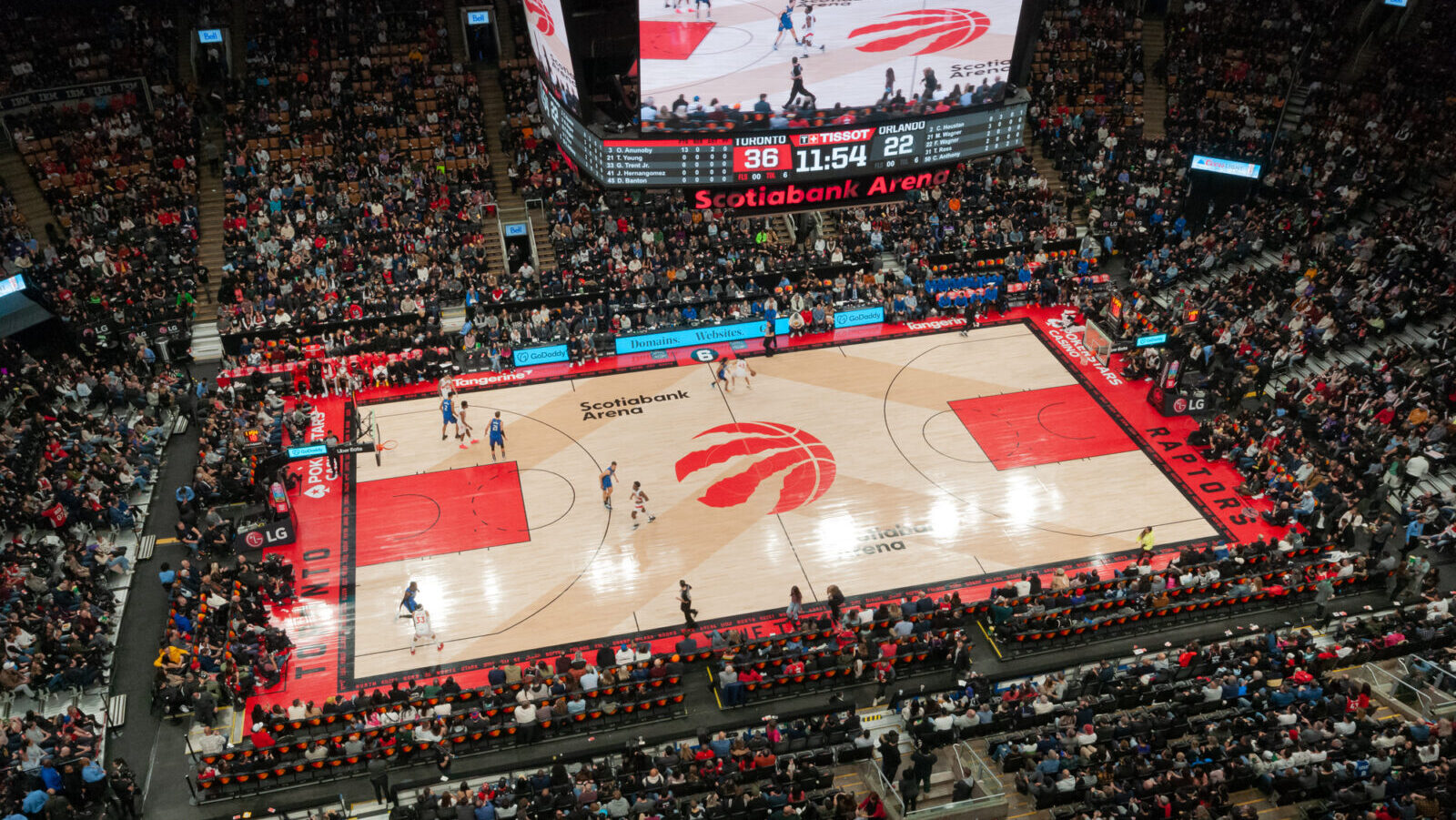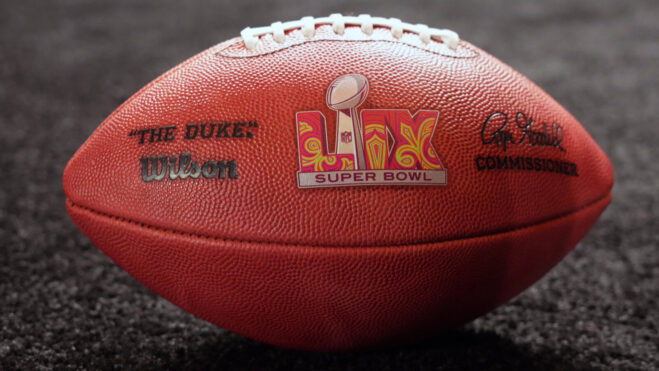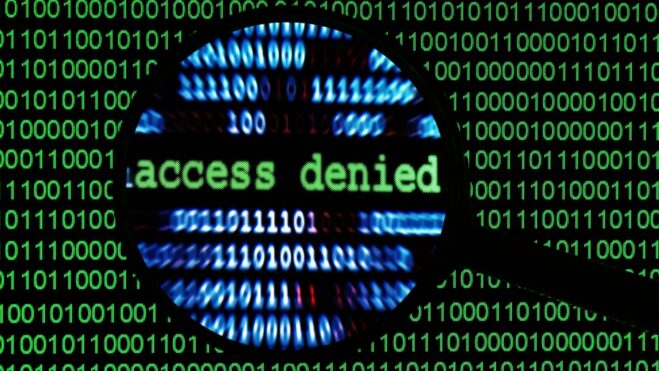Jontay Porter Punishment Gets Us No Closer To Knowing If Leagues Are Truly Tough On Gambling
What will happen if and when the player involved is not so low-profile as to make the decision to ban him easy?
4 min

Well, that was easy. Some three weeks after the NBA launched an investigation into Toronto Raptors bench player Jontay Porter amid suspicious betting around his player props, the league hit him with a lifetime ban.
It was open and shut.
Granted, as the death last Wednesday of a certain former NFL superstar turned accused murderer served to remind us, even the most open-and-shut cases don’t always turn out to be open and shut. But still … this Porter situation was very much open and shut, and the punishment was inevitable.
It was way too coincidental that large wagers were being placed on Porter’s statistical unders and he was exiting games early with injuries — not once, but twice. The NBA’s investigation ultimately found, the league said Wednesday in a statement, “Porter violated league rules by disclosing confidential information to sports bettors, limiting his own participation in one or more games for betting purposes, and betting on NBA games.”
Porter was not “fixing games,” per se, but he was manipulating elements of games in conjunction with sports bets, and the league therefore had no choice but to bring the hammer down on him. It was the right decision. It was the only decision. It was the easy decision.
But what happens when the player involved is not so low-profile as to make that decision easy?
Parade of patsies
Someone like Jontay Porter is exceedingly replaceable. He’s the perfect fall guy, the ideal sort of player to make an example of, because absolutely no NBA fan will miss him.
The same has been true in other leagues. The players caught violating their leagues’ gambling rules have not been stars. They’ve ranged from the end of the bench (the Arizona Cardinals’ Josh Shaw, Detroit Lions receiver Quintez Cephus, Korn Ferry golfers Vince India and Jake Staiano), to somewhat promising talents (the Lions’ Jameson Williams, the Indianapolis Colts’ Isaiah Rodgers Sr., Ottawa Senators center Shane Pinto), to one player who did begin to enter the realm of star talent, or at least is well known among the fantasy football community. That of course is 2020 second-team All-Pro former Atlanta Falcons receiver Calvin Ridley.
But that’s the highest up it’s reached. Ridley is the biggest name in U.S. sports to get hit with a suspension (one year, in his case). And he was still easy for the NFL to suspend. He’s not a superstar. Not a single extra ticket for Falcons games was getting sold because Ridley was suiting up.
We have yet to see any of these leagues tested in the post-PASPA era, tasked with deciding whether to sternly punish a player who is a major attraction. The last time such a decision had to be made, the year was 1989 and the superstar in question was the manager of the Cincinnati Reds, not an active player.
Playing the ‘what if’ game
We still don’t know: Would one of these league throw a lifetime ban at a true superstar? If Patrick Mahomes placed a few parlay bets in violation of the NFL’s rules, would he get the maximum sentence? What about if LeBron James left a game early when there was significant action on his unders? Or what if Shohei Ohtani was caught up in a sports betting scandal?
OK, bad example. Or maybe perfect example. MLB got to breathe a sigh of relief that all signs point to Ohtani being an unwitting victim, not a sinister co-conspirator.
There is a certain chicken-and-egg element to this whole conversation, as a player like Jontay Porter, who was on a two-way contract valued at a little over $400,000 this season, could realistically be financially compromised, whereas the amount you’d theoretically have to pay LeBron to make him tank a single free throw is many multiples of the maximum bet size any sportsbook would ever take.
So we may never find out what any of the leagues would do if someone with “face of the league” status suddenly earned “disgrace of the league” status. The gambling scandals across all sports in all countries since long before legalization spread in the U.S. have almost always centered around amateurs or pros who are barely able to make a living.
The system at work?
Speaking of the spread of legalization, the other slam-dunk angle on the Porter situation is that regulation got him caught. Had someone bet his unders for big money with a bookie or an offshore, nobody would have known about it. Perhaps someone’s thumbs would have been broken, and perhaps the books would have withheld the payment, but there’s no investigation, no sharing of information about the details of bets made by Porter or on Porter, and no lifetime ban.
Jontay Porter would be as anonymous today as he was a month ago, and if he didn’t get too greedy about it (big “if”), he’d be able to pull off this scam once every month or so.
Regulated books such as DraftKings are to blame for booking parlays involving player props with a seven-figure liability on a backup center in the first place, but regulation is to thank for such incidents not repeating in perpetuity.
Still, the gambling industry and the leagues come out of all this — the Porter situation, the Ohtani mess — with an image problem, because the average person doesn’t process that regulation sniffed Porter out or that Ohtani’s interpreter was using an illegal bookie outside the industry. They just see “sports betting” and “scandal” and they know the leagues are financially tied to sports gambling these days, and the dots connect themselves.
What the leagues want is for the integrity of the game to go untouched, for sports betting to generate money for all without there being scandals to go along with it. So the leagues have been cracking down on violations the last few years, no doubt.
But they haven’t been put in a position to prove how serious they are about cracking down. That’s something we won’t know for sure until it’s a true star, not Jontay Porter, in the crosshairs.






